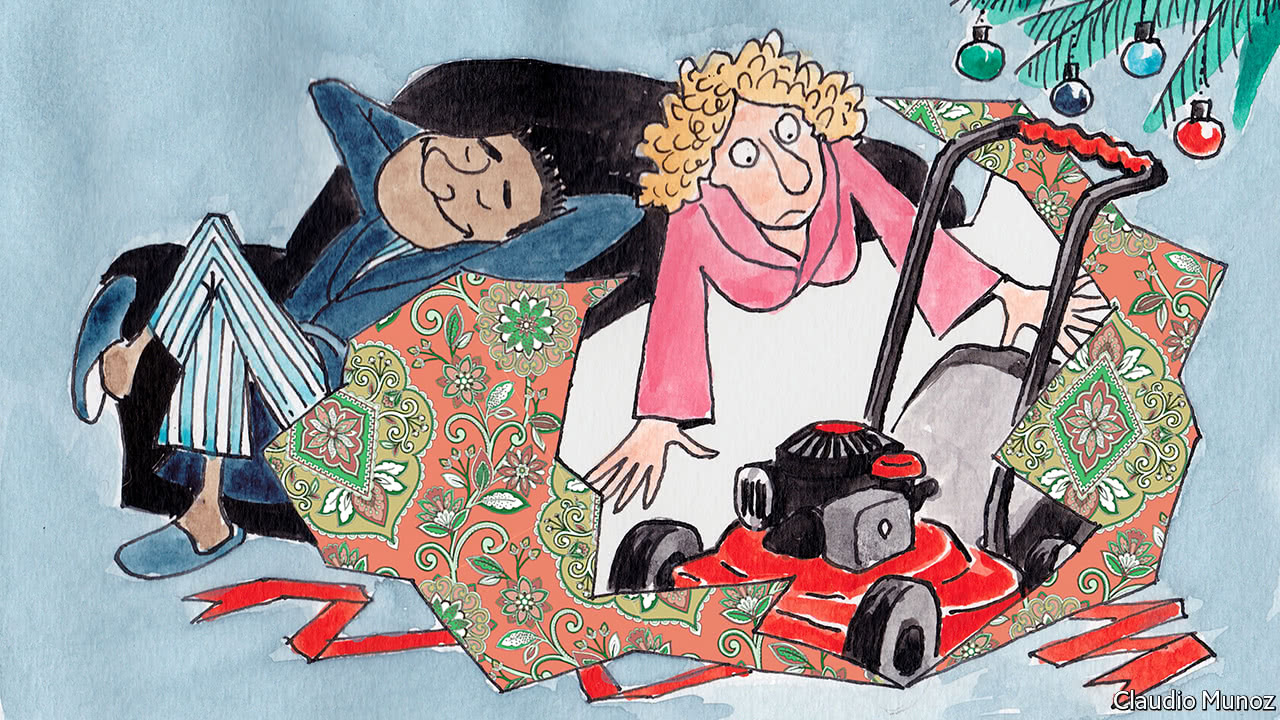
IS THERE any other time of year when good intentions and materialism converge so tightly? The caring, the artistic and the diligent spend their days before Christmas wrapping gifts. Whatever lies inside, their love for the recipients will also be expressed through paper, tape, bows and ribbon.
Then it all goes horribly wrong. New research* into the unwrapping of presents by two professors at the Yale School of Management and one at the University of Miami bravely applies rigour where sentimentality has long ruled. Their paper draws on a half-century of studies by scores of economists and psychologists as well as fresh field trials using hundreds of people from three universities.
-
New research reveals simmering misunderstanding under the tree
-
Supreme Court justices may give away their votes with their voices
-
Damian Green’s exit gives Theresa May a problem—and an opportunity
-
The Nigerian love of board games
-
America’s Department of Commerce imposes a tariff of 292% on Bombardier’s C-Series jets
-
The European Commission takes a gamble on Poland
The result is, for wrappers, a distressing discovery. Americans spend $3.2bn a year on wrapping paper. Yet their work not only fails to enhance joy, it creates unrealistic expectations that lead to discontent. Gift wrappers may think they are transforming the mundane into the magnificent; recipients seem to experience the process in reverse, with disappointment the result.
An underlying question in the studies is what really produces happiness. Earlier academic papers on this subject looked at what was termed “focalism”—the tendency to focus excessively on a main event, while ignoring other circumstances that end up quickly dampening joy. A paper published in 2000, for example, notes that college football fans think a victory will enhance happiness for three days; in fact, everyday experiences intrude and the added happiness dissipates in a day.
Expectations matter, too. Studies published in 1995 and 2006 examine why silver medallists experience more disappointment (because they missed the gold) than bronze medallists (who are overjoyed to get a medal at all). A study on gift-giving and happiness published in 2015 concluded that one source of disappointment is the selection of presents intended to reflect the recipient’s unique characteristics rather than more run-of-the-mill, popular items that might be more coveted.
Gift-wrapping has a bit of all these factors—discrepancies in focus, confusion over perspectives, misunderstanding of what is wanted. All this is wrapped up in a Grinch-like package, flipping the kindness of the holiday on its head. Still, there is a practical lesson for aspiring Santas, if they can harden their hearts to face the truth: covers should be consistent with the content.
*Different Comparisons for Gift Givers versus Gift Receivers: When attractive wrapping makes for a worse gift experience. Uzma Khan, School of Business Administration, University of Miami, Nathan Novemsky and Ravi Dhar, the Yale School of Management
Source: economist
New research reveals simmering misunderstanding under the tree